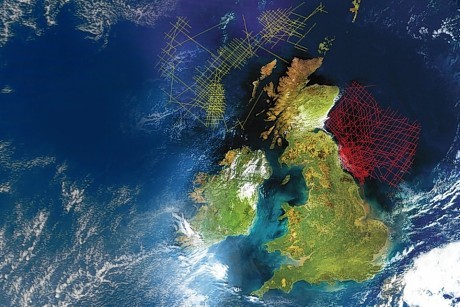
The National Grid has issued a “gas deficit warning” as fears mount that supplies could run empty amid extreme weather conditions across Britain.
The power operator said the warning has been issued in response to a series of “significant supply losses resulting in a forecast end-of-day supply deficit”.
Household supplies are not expected to be affected but shortages could hit industrial users as the Grid attempts to balance supply and demand into Friday.
It plans to do this by limiting industrial use and buying in more gas if necessary.
According to the National Grid’s forecast, there is a shortfall of around 50 million cubic metres.
It said in a statement: “National gas demand today is high and due to the extreme weather conditions, there have been gas supply losses overnight.
“At 5.45am this morning we issued a ‘Gas Deficit Warning’ to the market.
“This is an indication to the market that we’d like more gas to be made available to ensure the safe and reliable operation of the national gas network.
“We are in communication with industry partners and are closely monitoring the situation.”
The stark warning came as snowfall brought parts of Britain to a standstill, trapping motorists on roads and threatening air, rail and road journeys across the country.
Another day of sub-zero temperatures, gale-force icy winds and blizzard-like conditions is expected as Storm Emma sweeps in from the Atlantic on the tail of the Beast from the East’s chilly blast.
Gary Smith of the GMB said the union called on Business Secretary Greg Clark to launch an urgent inquiry into gas price security last November, claiming he refused to meet, saying that gas supplies into the UK were adequate.
“This current crisis confirms that an urgent inquiry is needed to explore the short-term risks to gas security of supply and its impact on the frequency, scale and duration of both gas and electricity price volatility, the need for a minimum level of UK gas storage to help mitigate exposure to international gas markets and energy price volatility, and the efficacy of introducing some form of regulatory framework to maintain existing and, where necessary, underpin new, investment in gas storage.
“The Government’s response so far has been to set up a workshop on March 16 to discuss gas security.
“However the current situation and risks involved demand a more formal and comprehensive analysis and review of policy options,” said Mr Smith.
Recommended for you
